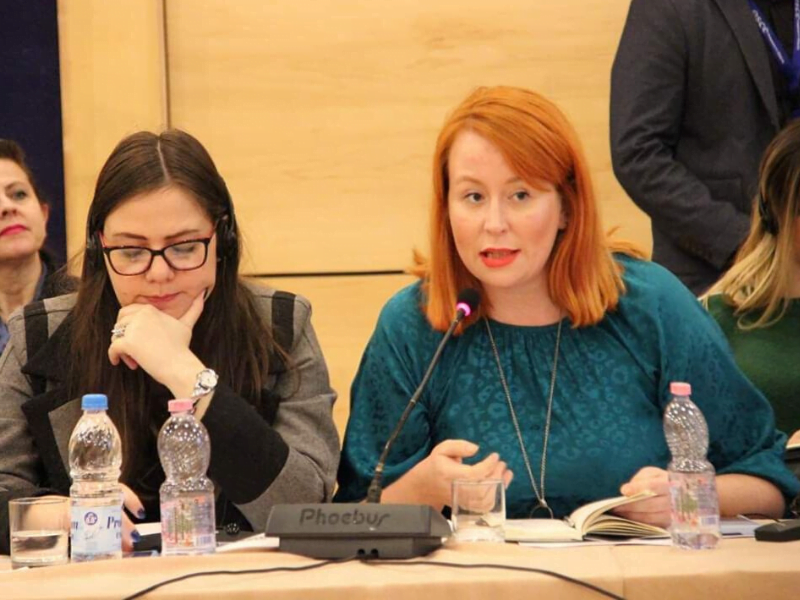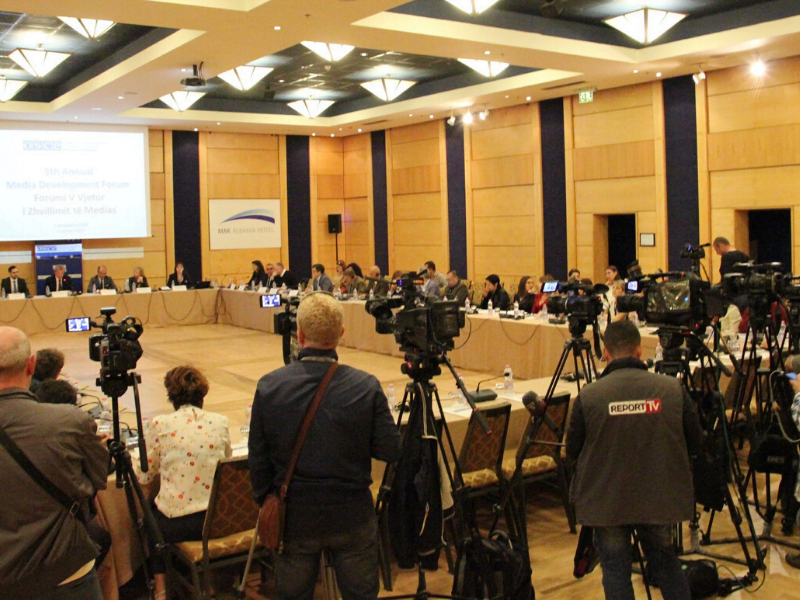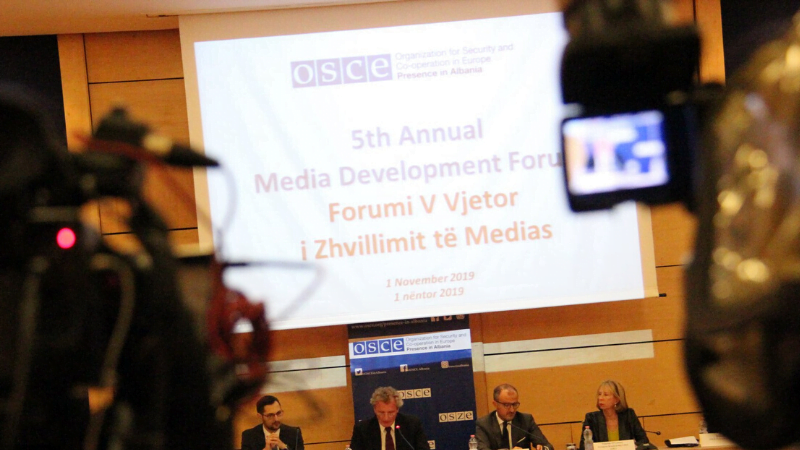The recent phenomenon of journalists attacking journalists, motivated by political pressure, was one of the main topics on the agenda at the OSCE Media Freedom Forum in Tirana, Albania last week.
“We are seeing journalists attack other journalists in coordinated attacks, often motivated by political pressure. This then becomes a massacre on social media, and journalists are threatened,” media lawyer Dorian Matilija said.
Matilija joined OSCE delegates from Albania, Montenegro and Kosovo, members of an EU delegation, and media freedom activists to debate the main challenges to press freedom in the current media climate.
Adis Mustedanagic, an Assistant Research Officer in the OSCE’s Office of the Representative on Freedom of the Media, talked about the importance of recognising freedom of expression as a human right, and acknowledging that a free media is one of the four pillars of democracy.
“We cannot continue to fail to protect people who put themselves on the line to bring us information on matters of public interest,” he said, noting that the “extreme pressures” on journalists today include economic, legal, physical, and political issues. At present, freedom of the media is not sufficient to meet OSCE standards in most member states.
“We must insist on impartial and swift investigations to bring the perpetrators to justice when journalists are attacked or killed”.

Journalist for The Shift and Exit.al, Alice Taylor, participated in the discussion organised by the OSCE.
Alice Taylor, a journalist for The Shift, was in Tirana for the debate. She said that when derogatory language is used by politicians and by politically compromised media portals, it creates an environment where journalists lives are at risk.
“The demonisation of journalists and the impunity of those who commit crimes against them is exactly what led to the assassination of Daphne Caruana Galizia in Malta,” Taylor said. “Caruana Galizia was hounded while she was alive and continues to be vilified after her murder, while those who killed her have not been brought to justice.”
“Journalism is under attack globally, and we are the only ones who can do anything about it. Journalists must come together, and not succumb to external pressure to attack each other.”
Topics on the agenda included the global increase in attacks against journalists by way of threats, harassment, smear campaigns, and physical violence.

OSCE Media Development Forum in Tirana, Albania
Albanian journalist Lufti Dervishi said the use of abusive and derogatory language towards journalists, such as the use of the word “trashcan” by Albanian Prime Minister Edi Rama, is an “ugly part” of the current media landscape.
He also raised the issue of impunity for crimes against media workers, noting that in cases where journalists have been threatened or attacked — including Klodiana Lala, whose house was sprayed with bullets last year — investigations “have not been followed up”.
Sanita Jemberga, a Latvian journalist and executive director of re:Baltica, spoke about the importance of diversity in media ownership. She said concentration of media platforms in the hands of a few individuals, many of whom are businessmen, leads to interference by political actors, impacting what is reported and how journalists are treated. “If journalists’ rights are oppressed, the public is not getting the best product”.
Several delegates from the European Broadcasting Union also spoke at the event. Senior project manager Radka Betcheva reminded those in attendance that “the media is not there to support politicians. It is there to criticise and investigate wrongdoing”.
Albania currently ranks at 82 on the Reporters Without Borders World Press Freedom Index. The governing socialist party is attempting to introduce a controversial anti-defamation law similar to one the Maltese government tried and failed to introduce in 2017.
If the law is passed, it could require online news portals to register, bringing them under the direct control of a government that would have the power to impose fines of up to €830,000 for what it considers “breaches” of the law. The proposal has been heavily condemned by local and international media freedom organisations and by the OSCE, who say it would have a “chilling effect on media freedom”.












